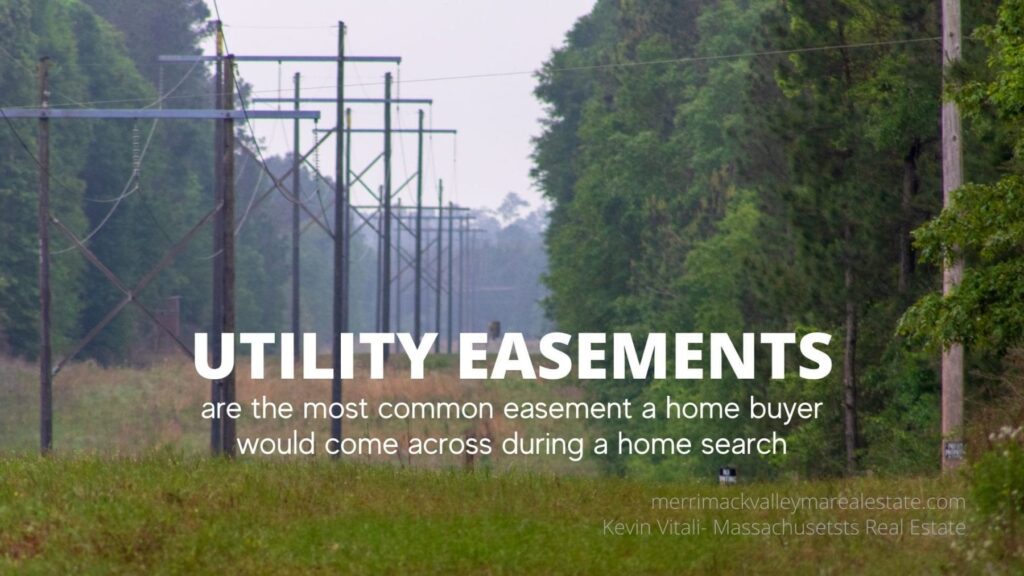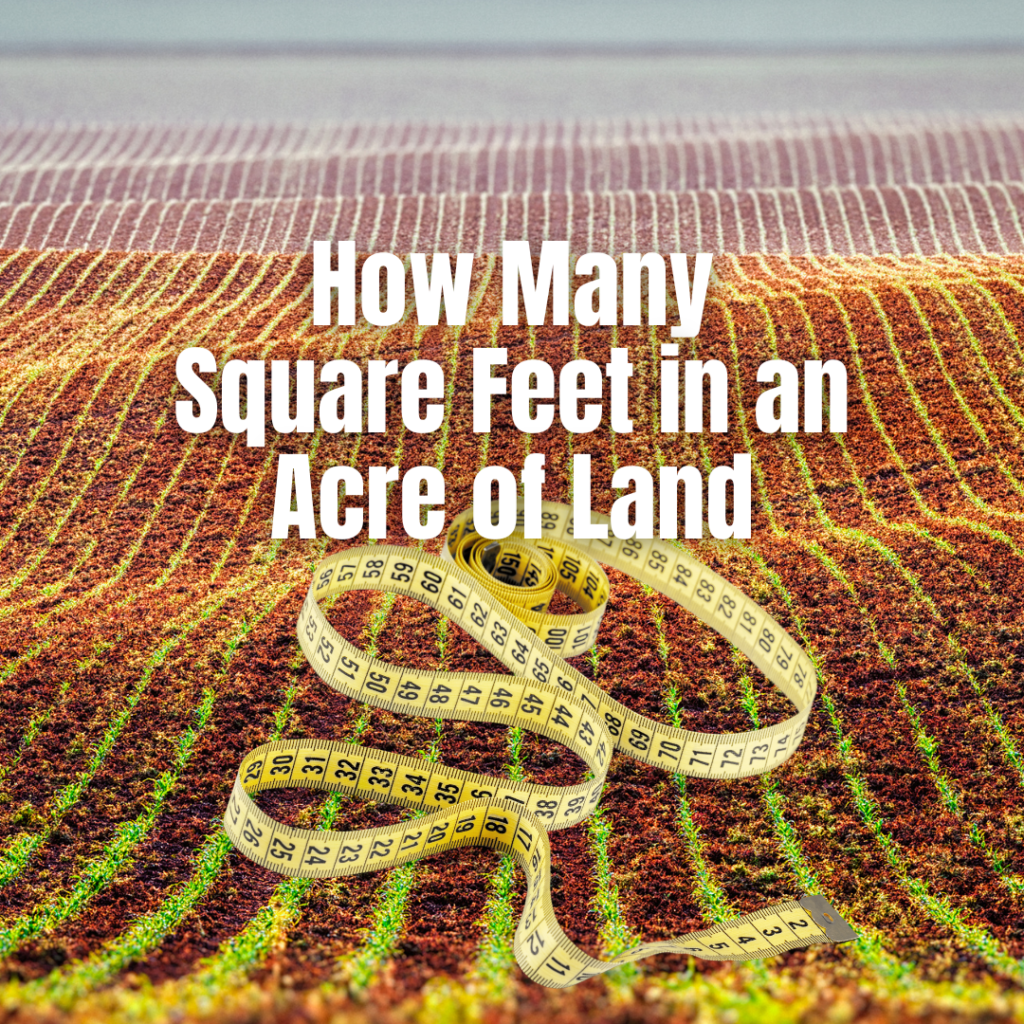Last night I wrapped up a property showing with a buyer client of mine. During the showing, we discovered there was an easement with the property.
As a home buyer, it may be more common than you think to find an easement or right of way on a property.
It is also not uncommon for sellers to be completely unaware that they have any type of easement attached to their land.
As a seller, you can avoid some last-minute issues by disclosing any issues like a right of way or easement involving your property.
If you run into a property that has an easement or right of way it is important to understand what is the purpose. As well as understand the legal rights and or responsibilities that go with it.
Alternatively, a property could also have the benefit of an easement or right of way giving you access to another’s land. You will want to understand what your rights are in the use of that easement.

The Difference Between an Easement and a Right of Way
Easements are legal rights that allow someone else to use land without having to pay rent or other fees. They’re often used by public agencies to build roads, pipelines, and power lines.
In both cases, you may own the land but others might have use of that land for a particular purpose. Or you could be granted an easement or right of way where you don’t own the land but have a right for a specific use.
An easement or right of way does not grant any possessory interest or ownership rights to the land. Both are granted by one property owner to another by a will, a deed or a contract. They can be for a specific length of time or indefinite.
A Right of Way Is A Type Of Easement
The difference between an easement and a right of way is right of way is a type of easement.
It gives a specific individual or a group of people a private right of way to cross the property. Or, a public right of way grants the general public the right to cross the land and use it as a passageway.
Often a right of way is seen around waterfront property. Here in New England, a right of way is used to give beach access to the public. Use of the property is restricted solely to the purpose of gaining access to another piece of property.
Easement
An easement is where a piece of land or portion of that land is granted for another’s use. Easement rights can be granted for a wide variety of reasons.
Typical examples of common easements that are found around here are utility easements. A utility company is granted permission to install and maintain utilities.
An example would be an electric company that has the legal right to run a power line above or below ground. Usually the easement will grant them to maintain the power lines as well
A utility easement could also apply to gas lines and underground water pipes and water lines or sewer lines, etc….
The town or state could also have a drainage easement for your property to install and maintain drainage to maintain runoff from a public road.
Driveway easements are also very common in condensed areas. The owner of a home without a driveway due to tight lot lines may ask for the use of land owned by a neighbor for an easement to build a driveway.
Types of Easements
There are two main types of easements: (1) an express easement and (2) an implied easement.
Express easements are written agreements between parties that grant one party the right to use land owned by another party.
Implied easements are not written; rather, they arise when a property owner uses his or her land in a certain manner for so long that it becomes customary for others to do the same thing.
Easement Terms
Appurtenant Easement- Appurtenant easements or an easement appurtenants are easements that apply even if a property ownership changes by a sale or transfer. It is considered to be “running with the land”
Gross Easement- An easement in gross allows an individual the right to use someone else’s land. The right is not transferred when a property is sold or transferred.
Affirmative Easement
An affirmative easement gives the easement holder the right of access or use to cross the land and requires the property owner to do something like allow the action to occur.
Negative Easement
A negative easement is a promise that a piece of property may not have a particular use. For example, it can’t be subdivided or have a building built on the premises. Sometimes large family estates are sold or passed on with the condition that the land will never be subdivided.
Prescriptive Easement
A prescriptive easement is when someone has used a piece of land, that is not theirs, for a period of time and seeks legal use of that land through an easement. While it sounds like adverse possession, it is a little different in the fact that that possession is not being sought, only the right to use the land.
Dominant Tenement
The Dominant Tenement or Dominant Estate is the real property or parcel of land that holds the right of use over another piece of property.
Servient Tenement
The Servient Tenement or Servient Estate is the parcel of land that is subject to the easement or use of the land by others.

How Do I Know If There Are Any Easement or Right of Way For Private Property
Start with the real estate agent listing the home. Hopefully, they have done some homework and have already disclosed any easements. As an agent who lists properties, I can tell you many sellers are shocked when they discover there are easements for their property. They either never knew or they forgot about them.
A quick check of the property’s deed, plot plan, land survey or subdivision plan may reveal any right of ways or easements on a piece of property.
Beyond that, a title search should uncover any easements and right of way. A title company or attorney would run a title search during the normal course of a closing. Often this is when easements are discovered.
Do Easements and Right of Ways Affect Property Values?
This would leave one asking, do easements affect property values? The quick answer is it depends.
If an encumbered property has an easement and that easement drastically reduces the ability for the owner to enjoy and improve their property, then yes an easement would affect the value.
On the other hand, an easement may not significantly alter an owner’s use of a piece of land and therefore it should not affect the value.
It boils down to how much the easement controls what an encumbered owner can and cannot do with the land. A simple right of way running across a small corner of the property probably would not impact the owner’s right to enjoy and improve his land. But a utility easement running across the lot 20 feet from the back door may have a significant impact on the use of land.
Real-World Example
As a real-world example, I was showing a home in Tewksbury MA today that had a utility easement running through the middle of the small backyard.
This showing is what actually prompted me to write this article The easement was 20 feet wide on a small lot. It ran smack dab across the middle of the lot that was only about 60 feet deep.
That 20-foot easement would prevent the new buyer from building a pool, a patio, etc…over that area.
In the event that the town needs to access the sewer easement, any improvement would be dug up and replaced at the owner’s expense. It would be done so at the owner’s expense.
The sewer easement is affecting the use of the home’s property in a negative way. It is severely restricting the owner’s use of the land. Therefore I would say, it affects the property value.
If you become aware of an easement in the course of buying a Massachusetts home make sure you understand what ramifications that easement may have on your use of the property. Talk with your buyer’s agent and if it seems a little more complicated certainly seek the counsel of an attorney.
FAQ’s about Easements And Right of Ways
I am building a shed and patio over an easement is that a problem?
Yes, it can be. Most often you would be talking about a utility easement. If the utility company needs to access the easement for repair they would rip up your patio and shed. And on top of it, they could bill you for the cost of demolition. Before altering the property over an easement consult a real estate attorney to fully understand your rights and responsibilities.
I want to build an addition and remove the easement the addition will be built over. How do I go about it?
It’s not that simple, most easements run with the land, meaning they are indefinite. The only way you can terminate an agreement is to get both parties to agree in writing.
How Do I Terminate an Easement?
An easement can be terminated. But only if both parties involved agree. Or it is shown there is no longer a need for the easement.
My Neighbor Has an Easement To Use Part Of My Driveway and I Need to Replace It, Can I Apportion A Cost Of It To My Neighbor?
It really boils down to the language in the easement. If it just states they have a right to use it, it could be an uphill battle to have them pay for a portion of replacement. But if the agreement states that they have the right to use and must help maintain, that could be a different story. Seek counsel before making any decisions.
Summary Of Easements and Rights of Way
Easements and right of ways are probably more common than you think when you purchase a home. Align yourself with professionals that will help you discover if a home you are about to buy is encumbered by easements. Some easements may not be a big deal while others may significantly impact the way you enjoy a property.
This article Easements vs. Rights of Way: What’s The Difference, was written by Kevin Vitali a Massachusetts Real Estate Agent. To discuss an upcoming sale or purchase contact Kevin Vitali at 978-360-0422




